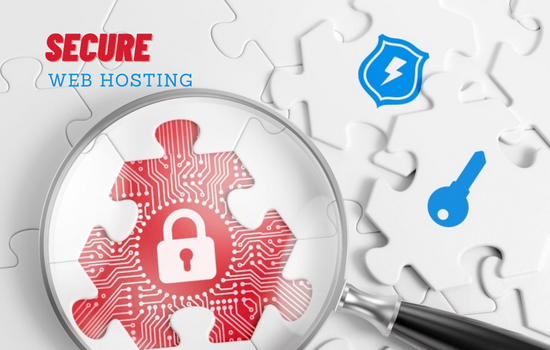Secure Web Hosting Provider Selection
Key Features that determine security of your website

It is essentially true that every online business demands safe and secure web hosting provider to be successful. The best strategy is considered to look for strong security measures beforehand while hunting for a web hosting provider. Even if you’re paying huge numbers to a world class hosting provider and the selected does not offer some of the most necessary security features then it is suggested to rather invest yourself in a cheap web hosting company with better security protocols.
We’re living in the digital era, where the internet is a core focus of commerce, communication, information and entertainment for all kinds of users, businesses, government or private organizations, and the media. Along with this rapid climb; there lies danger, threats and malwares that compromise the security of your online presence in any way possible. To tackle these hackers, viruses and threats you need to account for better security features when opting for a Web Hosting plan.
Here is a generalized list of most commonly needed but necessary to have tools and features from your service provider. These factors are crucial in determining ‘which of the following hosting services is secure’.
SSL Certification and Support
Secure Sockets Layer (SSL) authenticates and governs the encrypted web page’s identity by keeping a secure connection between server and the web browser. An SSL keeps away criminals and hackers from reading or writing data shared between two systems which is highly likely to attain personal information, credit card details or bank account transactions, login credentials and legal contracts-documents.
The price of SSL certificate and support varies from free to decent amounts depending on requirements of the user. When you choose a hosting provider, make sure to look for free certifications that should save you some bucks.
Improved Data Backups
You should always be prepared for any sort of outcome, let’s say things get out of control and you may lose data to some malware crash or an unsuspected hack. Your hosting provider should cover up all the data with secure backups.
Mostly there are two types of data backups; one is physical backup and the other is digital backup. Physical backups are on secondary locations to not compromise the valuable data. The best activity is to ensure a digital backup of your business if something is to happen which can be retrieved to an earlier version of your website.
Make sure to register for a plan with automatic data backups, frequent backups; daily instead of weekly backups and a huge storage for extended duration.
Operating Systems
Selection of the right operating system (OS) type for your module is very important as your security and expenses play a key role in this. Web hosting servers are governed by a software which is either on a windows-based OS or Linux-based OS. Both windows and linux hosting servers have their own parameters to keep a note on.
Windows servers are friendly and have a wide list of features, functions that greatly enhance user experience. However windows-based servers being little too extra to structure and with a licensing fee which differs for each version, cost some additional charges. Other than price, a windows-based server is more vulnerable to malwares than a linux-based server due to its huge commercial uses.
Nowadays enterprises and individuals tend to have linux-based servers mostly because they are hassle free, secure and relatively cheaper than a windows-based server. But then again, both types of operating servers have their own utility and user functionality. Visit any company’s Cloud VPS to get detailed offers on different ranges of both Windows VPS and Linux VPS.
Ensure Malware Protection | Antivirus
Malware is anything that compromises with the security of your website. They can be software, plug-ins and codes that are used to breach a system and encrypt all of your data. Malware is considered as one of biggest threats because they damage, steal, encrypt and invade your personal activity.
Web hosting providers should ensure routine malware checkups and authentic Antivirus programs like CPGuard to avoid that kind of damage from happening. Go for any secure web hosting provider that utilizes a number of malware detections and respective Antivirus for resolving issues.
Firewall Detection and Protection
Firewall is as necessary as other factors when considering web hosting or any sort of important networking. It restricts most of the hostile and harmful traffic from entering your network.
Firewall is not just limited to web hosting alone, almost all other organizations with networking make use of web application firewalls to monitor and control the unwanted traffic into their servers. Firewalls are not completely dedicated to block every attack although they work on specific web traffic towards specific web applications.
Keep a look-out for what sort of firewall your hosting provider offers as most of the firewall breaches happen during configuration. Good protocols like imunify360, Config Server Firewall (CSF) ensure security configuration on your website which ultimately improves the performance and reduces any risk.
DDoS Attacks | Brute Force Attacks
The most unauthorized act of gaining access to your credentials is done by throwing a huge number of Brute Attacks and uncontrollable traffic on your website as distributed denial-of-service DDoS attacks. These are known to be common hacker tools that your hosting provider should consider more than anything.
Give preference to services with Content Distribution Network (CDN) which can reduce DDoS attacks by displaying cached content stored on multiple servers to reduce intensity of these attacks. You can purchase CDN’s separately to place on your website but it is suggested to select a web hosting provider with security modules like this covered up for you.




